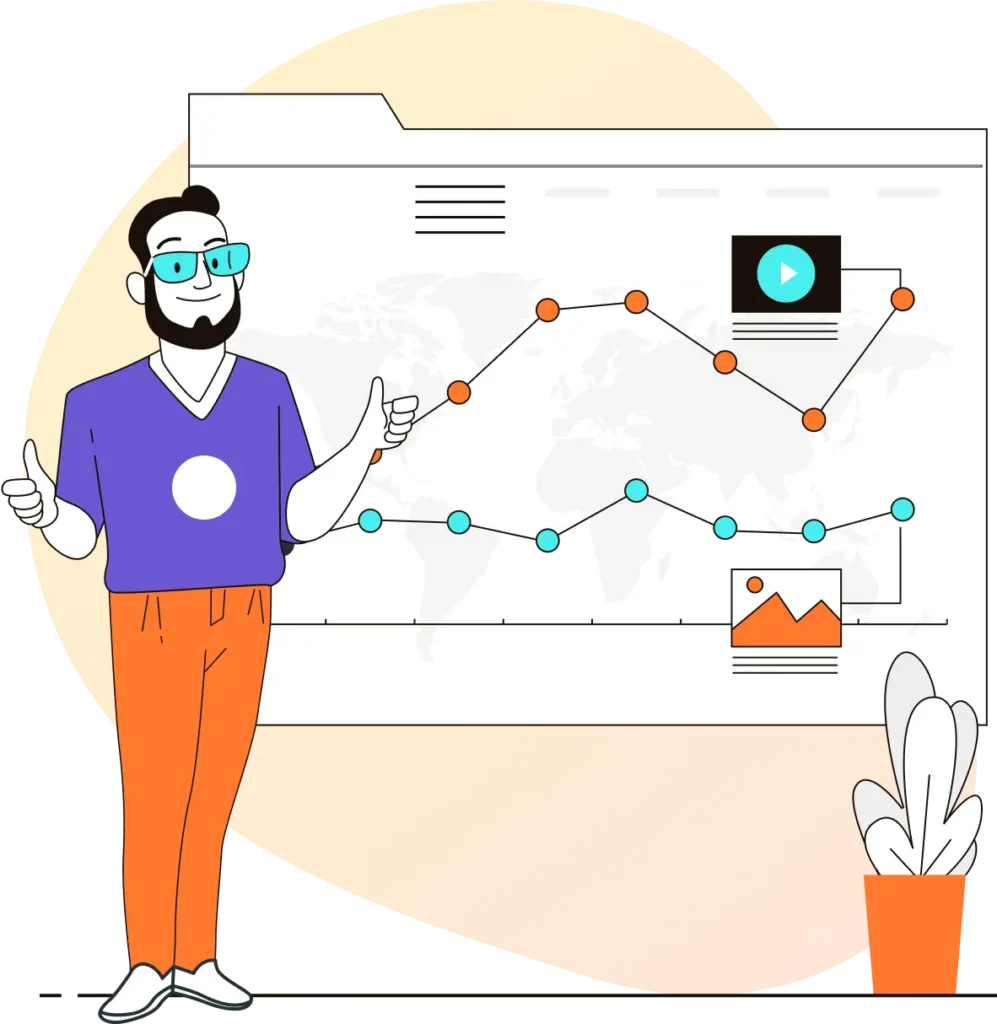The digital landscape is a dynamic and ever-evolving realm, and staying ahead of the curve is no longer a luxury but a necessity for businesses and individuals alike. As we step into 2025, the strategies that once guaranteed success are shifting, giving way to new technologies, evolving consumer behaviors, and sophisticated analytical tools. To truly excel in digital marketing this year, you need a proactive approach, a willingness to adapt, and a deep understanding of the emerging trends that are reshaping how brands connect with their audiences. From AI-driven insights to immersive experiences, the opportunities are boundless for those who embrace innovation and consistently optimize their efforts.
Index
- Mastering AI for Personalized Campaigns in digital marketing
- The Evolution of Search Engine Optimization (SEO)
- Dominating Social Media Marketing with Authentic Engagement
- Strategic Google Ads Optimization with digital marketing
- Unlocking the Power of Instagram Marketing
- Leveraging Meta Advertising for Omnichannel Reach
- Harnessing Google Analytics for Data-Driven Decisions
- Embracing Video Content Across All Platforms with the help of digital marketing
- Building Community and Fostering Brand Loyalty
- Prioritizing Privacy and Trust in digital marketing
1. Mastering AI for Personalized Campaigns in digital marketing
Artificial intelligence (AI) is no longer a futuristic concept; it’s an integral part of modern digital marketing. In 2025, excelling means leveraging AI to create hyper-personalized customer experiences. AI-powered tools can analyze vast amounts of customer data in real-time, identifying patterns, predicting behaviors, and automating tasks that were once time-consuming. This allows marketers to deliver the right message to the right person at the right time, significantly enhancing engagement and conversion rates.
Beyond basic automation, AI will revolutionize content creation, ad optimization, and customer service through chatbots and virtual assistants. Marketers should focus on using AI to segment audiences with precision, tailor content recommendations, and even generate creative ad copy and visuals. This shift towards AI-driven personalization is crucial for cutting through the noise and building meaningful connections with consumers who expect highly relevant interactions. Understanding how to interpret AI-generated insights and refine strategies based on these predictions will be a key differentiator.
2. The Evolution of Search Engine Optimization (SEO)
SEO in 2025 is less about keyword stuffing and more about delivering exceptional user experience and valuable, authoritative content. With the rise of AI in search and more sophisticated algorithms, understanding search intent is paramount. Google’s algorithms are becoming increasingly adept at understanding natural language, making conversational search and long-tail keywords more important than ever. Optimizing for “search everywhere” – including voice search and visual search – will be critical.
Technical SEO remains a foundational element; ensuring your website is fast, mobile-friendly, and secure is non-negotiable. However, content quality and authority are the true drivers of organic visibility. Focus on creating comprehensive, in-depth content that genuinely answers user queries and establishes your brand as a trusted resource. Building a strong backlink profile from reputable sources will continue to signal authority to search engines. Marketers must also pay attention to structured data and schema markup to help search engines better understand their content and potentially gain rich snippets in search results. The goal is to provide such valuable content that users don’t just find you, but actively seek you out and trust your information.
3. Dominating Social Media Marketing with Authentic Engagement
Social media marketing continues to evolve, moving beyond mere broadcasting to fostering genuine community and interaction. In 2025, authenticity and transparency are key. Users crave relatable content that builds real connections, and brands that engage in two-way conversations will thrive. This means ditching overly polished, sales-y posts in favor of behind-the-scenes glimpses, user-generated content (UGC), and interactive elements.
Platforms like Instagram Marketing are emphasizing short-form video content like Reels, and brands must adapt their content strategies to prioritize dynamic, engaging visuals and audio. Experimentation with content formats, leveraging trending sounds, and participating in challenges can significantly boost visibility. Furthermore, social listening tools will become indispensable for understanding audience sentiment and identifying emerging trends to capitalize on. Building a loyal community means actively responding to comments and messages, facilitating discussions, and empowering your audience to become brand advocates.
4. Strategic Google Ads Optimization using digital marketing
In 2025, running effective Google Ads campaigns requires a strategic approach that embraces AI and automation while prioritizing first-party data and privacy. Gone are the days of manual, granular bid adjustments. Smart Bidding strategies like Target CPA and Maximize Conversions, powered by Google’s machine learning, are becoming increasingly sophisticated and crucial for optimizing performance. Advertisers must feed these algorithms with high-quality conversion data for optimal results.
Responsive Search Ads (RSAs) are now the default, demanding diverse and compelling headlines and descriptions to allow Google to dynamically serve the best combinations. Beyond search, exploring the full spectrum of Google’s advertising network, including Display, YouTube, and Discovery campaigns, will offer broader reach. Continuous monitoring of the Search Terms Report to identify negative keyword opportunities and new long-tail keywords is vital for reducing wasted spend and improving ad relevance. Moreover, a seamless landing page experience, aligned with ad messaging and optimized for mobile, is critical for converting clicks into valuable actions.
5. Unlocking the Power of Instagram Marketing
Instagram Marketing in 2025 is heavily focused on visual storytelling and interactive experiences. With video content, particularly short-form Reels, dominating the platform, brands need to invest in high-quality, engaging video production. This includes behind-the-scenes content, day-in-the-life snippets, and educational tutorials that resonate with the audience. The platform’s increasing emphasis on native features like interactive stickers, polls, and Q&As in Stories provides ample opportunities for direct audience engagement.
Collaborations with influencers and other brands through Instagram’s “Collabs” feature can significantly expand reach and tap into new audiences. Businesses should also leverage Instagram Shopping features to create seamless in-app purchasing experiences, bridging the gap between discovery and conversion. Furthermore, understanding Instagram SEO, by using relevant keywords in captions, hashtags, and even within the video content itself, can improve discoverability in the Explore tab and user feeds. Authenticity, consistency, and a clear brand voice will set successful Instagram strategies apart.

6. Leveraging Meta Advertising for Omnichannel Reach
Meta Advertising (encompassing Facebook, Instagram, Messenger, and Audience Network) continues to be a powerhouse for reaching diverse audiences. In 2025, the focus is on maximizing the potential of its advanced targeting capabilities and embracing AI-driven creative optimization. With ongoing privacy changes, prioritizing first-party data collection and consent management is paramount for maintaining effective targeting.
Meta’s sophisticated algorithms, especially with the rise of Aggregated Event Measurement (AEM), allow for powerful audience segmentation, including custom audiences (based on website visitors, app activity, or customer lists) and lookalike audiences. Advertisers should experiment with various ad formats, from image and video ads to carousels and collection ads, tailoring them to specific campaign objectives (e.g., brand awareness, lead generation, sales). The emergence of Threads as an advertising platform within the Meta ecosystem also presents new opportunities, particularly for reaching Gen Z and creator-driven communities. Continuous A/B testing of creatives, calls-to-action, and targeting parameters will be essential for maximizing ROI on Meta’s competitive ad platform.
7. Harnessing Google Analytics for Data-Driven Decisions
Google Analytics (specifically GA4) is the cornerstone of data-driven digital marketing in 2025. It moves beyond traditional session-based tracking to an event-based data model, providing a more comprehensive understanding of user behavior across websites and apps. To excel, marketers must fully embrace GA4’s capabilities for collecting, analyzing, and interpreting data.
Key features like enhanced measurement, custom events, and user-ID tracking enable a holistic view of the customer journey. Leveraging GA4’s AI-powered predictive insights, such as purchase probability and churn probability, allows for proactive strategy adjustments. Marketers should regularly delve into the “Explore” section to conduct deep-dive analyses, including path analysis, funnel analysis, and segment overlap, to uncover actionable insights. The ability to integrate Google Analytics data with other platforms (like Google Ads and CRM systems) is crucial for a unified view of marketing performance and attributing success accurately. Understanding how to set up, customize, and report from GA4 will be fundamental for every digital marketer.
8. Embracing Video Content Across All Platforms with the help of digital marketing
Video content has undeniably become the king of content, and this trend will only intensify in 2025. From short-form vertical videos on social media marketing platforms like Instagram Reels and TikTok, to long-form content on YouTube, video dominates consumer attention. To excel, digital marketers must incorporate a robust video strategy across all their channels.
This isn’t just about creating viral content; it’s about using video for education, entertainment, brand storytelling, and product demonstrations. Live streams and interactive videos are also gaining traction, offering real-time engagement opportunities. Investing in quality video production, whether it’s professional-grade or authentic user-generated style, is crucial. Furthermore, optimizing videos for search (video SEO), including descriptive titles, relevant tags, and strong calls to action, will enhance discoverability on platforms like YouTube and within Google Search results.

9. Building Community and Fostering Brand Loyalty
In an increasingly commoditized world, building a strong community around your brand is a powerful differentiator. In 2025, digital marketing success will heavily rely on fostering genuine connections and nurturing brand loyalty. This goes beyond transactional relationships to creating a sense of belonging and shared values.
Engage with your audience on social media, create dedicated online groups or forums, and encourage user-generated content and testimonials. Implement loyalty programs that reward repeat customers and advocates. Personalized email marketing campaigns that offer exclusive content or early access to products can also strengthen bonds. The goal is to turn customers into advocates who actively promote your brand through word-of-mouth marketing, which remains one of the most effective forms of promotion.
10. Prioritizing Privacy and Trust with Digital marketing
With increasing data privacy regulations and growing consumer awareness, prioritizing privacy and building trust are paramount in 2025. Transparent data practices are no longer just a legal requirement but a significant competitive advantage. Consumers are more likely to engage with brands they trust to handle their personal information responsibly.
This means clearly communicating your data collection practices, offering opt-in and opt-out options, and ensuring compliance with regulations like GDPR and CCPA. Focus on utilizing first-party data (data collected directly from your customers) as much as possible, as it provides valuable insights while minimizing reliance on third-party cookies, which are facing deprecation. Building trust also extends to the content you publish – ensure it’s accurate, reliable, and provides genuine value, avoiding misleading claims or clickbait. A brand’s reputation for ethical data handling and transparent communication will be a cornerstone of digital marketing success.
Conclusion
The year 2025 promises to be an exciting and transformative period for digital marketing. Excelling in this dynamic environment requires a holistic and adaptive approach. By mastering AI for personalization, refining your SEO strategies, engaging authentically on social media marketing platforms like Instagram Marketing, optimizing your Google Ads and Meta Advertising campaigns, leveraging Google Analytics for deep insights, embracing video, building strong communities, and prioritizing user privacy and trust, you’ll be well-equipped to navigate the evolving digital landscape and achieve significant growth for your brand. Continuous learning and a willingness to experiment will be your greatest assets as you strive for digital marketing excellence in the coming year.